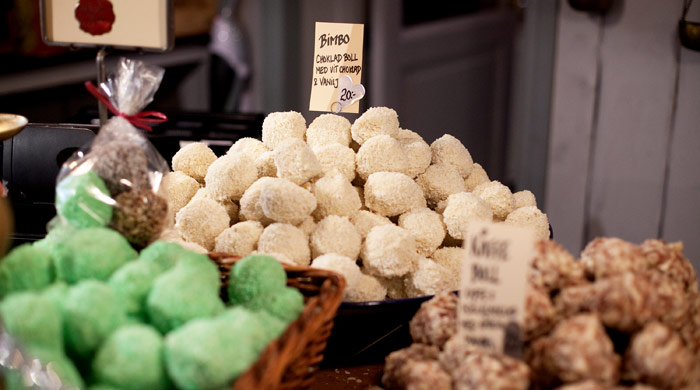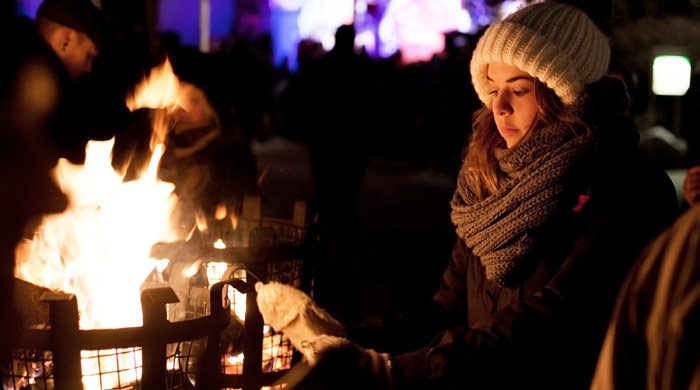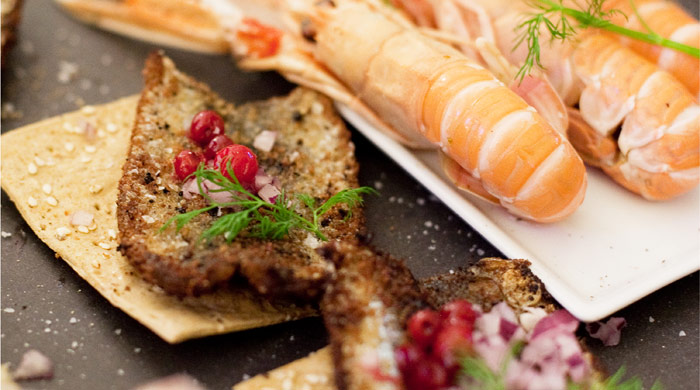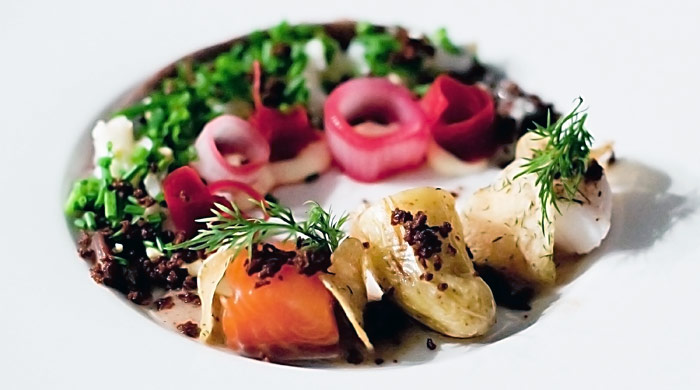Article content
16 October 2015 by David Ward
David Ward travelled to Sweden's scenic west coast and discovered a charismatic city brimming with history, culture and a world of culinary possibilities.
Having travelled to Sweden just a few months previously, when I was fortunate enough to spend a few days in the charming capital Stockholm, my arrival into Gothenburg was something I'd been looking forward to with much anticipation.
So, on a chilly evening in mid-December, I touched down at Göteborg Landvetter Airport. At first glance, it appeared to have been put together by an overzealous flat pack assembly team of from a leading Swedish furniture brand! After a swift exit, I was ready to begin a whirlwind, three-day tour of Sweden's second city, its famed Christmas markets and the nearby islands of the picturesque archipelago.
First on the agenda, however, was to check into my hotel. The stylish and centrally-located Clarion Post occupies Gothenburg's old post office – a grand old building located in the heart of the city on Drottningtorget, Gothenburg's main square, just seconds from the railway station and central shopping district. And, with a tram stop just outside and many of the city's main attractions just a short walk away, it would be hard to imagine a better location.

Despite waking up in the heart of Gothenburg, my first morning was spent at Gunnebo Mansion on the outskirts of the city. The house and beautiful landscaped gardens was designed in the 18th century by Gothenburg city architect Carl Wilhelm Carlberg for a wealthy local merchant named John Hall, and is one of the finest examples of neoclassical architecture in Sweden. A brief tour of the house gave an insight into the size and complexity of the ongoing restoration project, much of which has been made possible by the discovery of Carlberg's original design plans, a total of 200 architectural drawings that has enable the restoration, and in some cases reconstruction, of the house's grand interior.
Soon, after some time spent wandering the mansion's beautiful grounds, it was time to head back to the city, but not before enjoying a delicious lunch of homemade bread and soup made from the produce of Gunnebo's Kitchen Gardens, an organic herb and vegetable garden that was part of the house's original design. This was my first taste of Gothenburg's superb culinary scene, something that would prove to be a genuine highlight of my stay in the city.
An afternoon in the city offered the chance to visit some of the city's museums, starting with the Gothenburg Museum of Art, which houses one of the world's largest collections of Nordic art from the turn of the 19th century and includes works by some of Scandinavia's best known artists, including Carl Larsson and the famous expressionist painter Edvard Munch.
After a brief guided tour, I headed to the Röhsska Museum, Sweden's only museum dedicated to fashion, design and decorative arts, with displays covering everything from contemporary fashion and design to ancient Chinese ceramics. Sweden is a nation obsessed with design, and this museum provides a fascinating insight into some of the country's most creative minds, as well as housing fashion and design collections and exhibits from across Europe and beyond.
In the evening, after a quick freshen up back at the hotel, I boarded a small riverboat, which would take me along Gothenburg's canal system, under a series of rather low bridges, and to the bright lights of the Liseberg Amusement Park, dressed in all its festive finery for the city's annual Christmas markets. Liseberg is popular at any time of the year, its three million annual visitors making it one of the most visited amusement parks in Scandinavia. During December however, the park really comes to life, with almost 100 wooden market stalls, decorated with what seems like a million twinkling lights, selling art and crafts all manner of traditional festive treats, from marinated herring and roasted reindeer to the ubiquitous glögg, a warming mulled wine that seems to be on sale at almost every stall in the market and provides a comforting blanket against the evening's winter chill. Just wandering the market's maze of illuminated pathways, soaking up the sights and sounds of a traditional Swedish Christmas and enjoying the wonderful aroma of gingerbread wafting through the cold night air was an unforgettable experience.

The following morning it was time to leave Gothenburg behind, for a short time at least, and head to one of the small islands that make up part of the beautiful southern archipelago, just a stone's throw from the heart of the city. Armed with my Gothenburg City Card, which offers entry to several museums and attractions as well as unlimited use of the city's remarkably efficient transport system, I headed by tram to the ferry port at Saltholmen on the outskirts of town, where I boarded a ferry to Styrsö Island. Sadly, the weather was not at its best and as the cloud came down and the views vanished from sight I beat a hasty retreat to the delightful Styrsö Skäret, a family-run guesthouse on a small hill positioned just above the water's edge. This quaint and quirky guesthouse, with just a handful of characterful rooms and a wonderful restaurant featuring a delightful menu of local specialities, is the perfect base for visitors looking to spend more time exploring the archipelago, while experiencing the best in Swedish hospitality. After an hour or so the cloud lifted slightly so I made my way out along a narrow track, past small lakes and through woodland to the top of a nearby hill, where I was rewarded with sweeping, if a little cloudy, views across the forested island and archipelago beyond.
Returning to Gothenburg, my afternoon was spent exploring some of the city's smaller markets and eateries, which, for me, make this one of the best cities for foodies anywhere in northern Europe, beginning at the superb seafood lunch, accompanied by strong local ale, at Restaurant Gabriel inside the 19th century Feskekörka (Fish Market Hall).

The day continued with a stroll along the 19th century cobbled lanes of the Haga district, where outdoor markets sell homemade wares and vintage curios, and an abundance of cafes provide the perfect pit stop for coffee and the chance to indulge in pepparkakor (ginger snaps) and lussebullar (saffron-spiced buns). Feeling as Christmassy as Santa Claus himself, I headed back into town, curious to see a performance by the singing Christmas tree at Dottningtorget. Sadly, I misjudged the time it would take to walk from Haga back to the city centre, so caught only the tail end of what appeared to be a giant, musical elven pyramid, which on closer inspection turned out to be around 20 or so people dressed in green tunics and red hats, singing traditional Swedish Christmas songs and carols.
This evening, I made my way to Avequia, a wonderful dining experience where guests learn to cook a three-course, Scandinavian-inspired dinner, accompanied by free-flowing wine, under the supervision of a Michelin-trained chef.

The next day – my last in Gothenburg – I took a tram to the cosy Christmas market at Crown-house, a building dating back to the 1600s. Inside, the market is packed with all manner of Swedish handicrafts, sold by artisans dressed in traditional costume, while next door, the old chocolate works offers some of the best confectionary in the city and outside in the square, stalls selling roasted chestnuts and Swedish glögg only add to the festive atmosphere.


